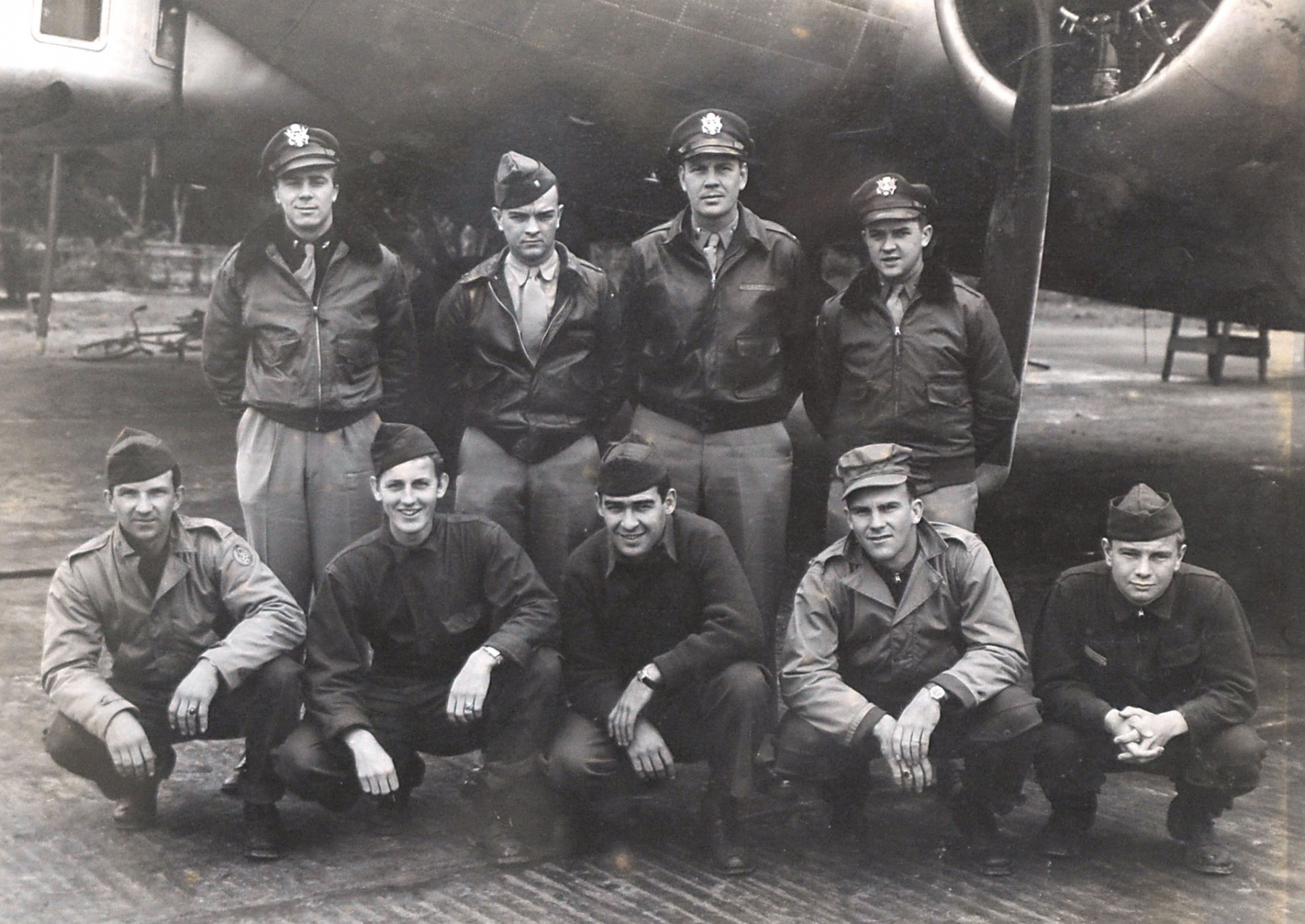World War II veteran & retired judge reflects on service, life
by KIMBERLEE SABSHIN
As a decorated World War II veteran, retired New York State Supreme Court Judge James B. Kane Jr. transitioned from the Army Air Forces to the bench after completing his tour of duty. Last month, the nonagenarian discussed his military service and being shot down over Europe, accomplishments as a judge and his wife, Marie, who passed away earlier this year, as well as his Catholic faith.
Kane, a native of South Buffalo, was born on July 21, 1924. He was 18 years old when he enlisted in the military, initially moving to Florida for basic training. Eventually, he joined the Army Air Forces in the cadet program and went to Michigan State College. From there, he entered navigation school and was commissioned a first lieutenant, which would eventually lead him to his near-death experience in the war.
"I went over to Europe when I was 19," Kane recalled, noting this was in 1943 and into early 1944. "I was assigned to a bomber group, and I was assigned to one plane. I flew 30 bomber missions over Germany."
During the war, Kane served as a navigator and lost nearly his entire crew; out of nine men, only Kane and one other man survived when German forces shot their plane out of the sky.
"We got badly hit over Europe. We bailed out over the North Sea, and everybody got out except for the pilot," Kane said. "There were two survivors, myself and the co-pilot, who were picked up by a boat cruising in the North Sea. It was not too long. It was October, so it was pretty cold. I wasn't in the water very long."
Kane, who was raised Catholic, said he felt his faith helped him through this difficult time. "I know that it didn't hurt. I feel very strongly that it helped me," Kane, who had then been a parishioner of St. Teresa Parish in South Buffalo and now attends services at Nativity of Our Lord in Orchard Park, said.
"I was always in England," he added. "The ship that picked us up left us off in France, but eventually I got back within a few days to England, to my original base. I completed my tour with 30 missions."
By the time the war ended, Kane returned to the United States, noting he had been "in the right place at the right time" to be discharged. He was the recipient of an Air Medal with five oak leaf clusters and the Distinguished Flying Cross. Using the G.I. Bill, Kane attended Canisius College in Buffalo. After completing his undergraduate degree, he went to law school at Georgetown University in Washington, D.C.
"I became a judge in Buffalo City Court and Erie County Family Court, and eventually the New York State Supreme Court," Kane said. "Buffalo City Court is a court of original jurisdiction, so you heard all kinds of cases, criminal and civil. Then I moved to family court, which involved family court problems, adoptions, et cetera. Then I was elected to New York Supreme Court, which is a court of final jurisdiction."
In addition to his professional life, James and Marie Kane had 10 children and 14 grandchildren. Marie, nee O'Hearn, was a nurse at Our Lady of Victory, and she had already begun her career when the two met. This year, they would have been married for 64 years. She passed away on July 15.
While on the bench, Kane said being a good judge was about hearing all of the facts about any case in front of him before committing to judgment, invoking a Catholic sense of justice and fairness.
When asked about Veterans Day and what it means to him as a veteran, Kane commented, "If you had the benefit of being in service, I think it gives you a greater appreciation of being home and being free to do what you want, and seek whatever career you wish.
"It gives you pause to stop and remember all of the things you've accumulated throughout your life, and I think having served in the military, I think that's an important part of your life," he concluded. "I think I've been very fortunate - living in Buffalo and having survived the war, and having enjoyed what I call a successful career, and a wonderful family."




